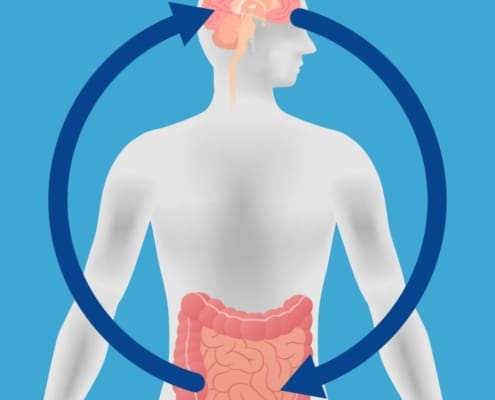Disorders of Gut-Brain Interaction: Understanding, Assessing, and Treating Mind-Body Conditions in Clinical Practice
DATE: Friday, October 3, 2025
TIME: 1:30 p.m. to 4:30 p.m. ET // 12:30 p.m. to 3:30 p.m. CT // 10:30 a.m. to 1:30 p.m. PT // 11:30 a.m. to 2:30 p.m. MT
PLATFORM: Via Zoom Webinar
COST: $59
FEATURES:
- Live & Interactive Webinar
- Presentation Slides PDF & Additional Resources Included
- Provides for 3 CE hours of Clinical
Disorders of Gut-Brain Interaction (DGBIs) represent a group of chronic conditions that reflect the complex and bidirectional communication between the central nervous system and the gastrointestinal tract. These disorders—including irritable bowel syndrome (IBS), functional dyspepsia, and cyclic vomiting syndrome—are increasingly understood to be influenced by stress, trauma, mood, and emotional regulation. This 3-hour continuing education training is designed to equip mental health professionals with a clinical understanding of DGBIs and practical tools for assessment and intervention. The course explores the biopsychosocial model of care, including the neurobiological underpinnings of the gut-brain axis, the role of early attachment and trauma, and evidence-based therapeutic approaches for managing symptoms.
Participants will learn to identify key psychological and somatic features of DGBIs, understand the impact of stress and emotional dysregulation on gastrointestinal functioning, and implement integrative interventions including cognitive behavioral therapy (CBT), clinical hypnosis, psychoeducation, mindfulness, and body-based strategies. The training will also address cultural considerations, chronic illness stigma, and collaborative care with medical providers.
Through case vignettes, experiential exercises, and evidence-informed strategies, clinicians will leave with greater confidence in addressing these often-overlooked and misunderstood conditions in clinical practice.
Upon completion of the webinar, participants will be able to:
- Explain the bidirectional relationship between the gut and brain, including the role of the gut microbiome, autonomic nervous system, and immune function in mental health and emotional regulation.
- Identify common Disorders of the gut-brain interaction (DGBIs) and their association with psychiatric conditions such as anxiety, depression, and trauma-related disorders.
- Identify and apply evidence-based psychological interventions to support clients experiencing DGBIs and related mental health symptoms.




